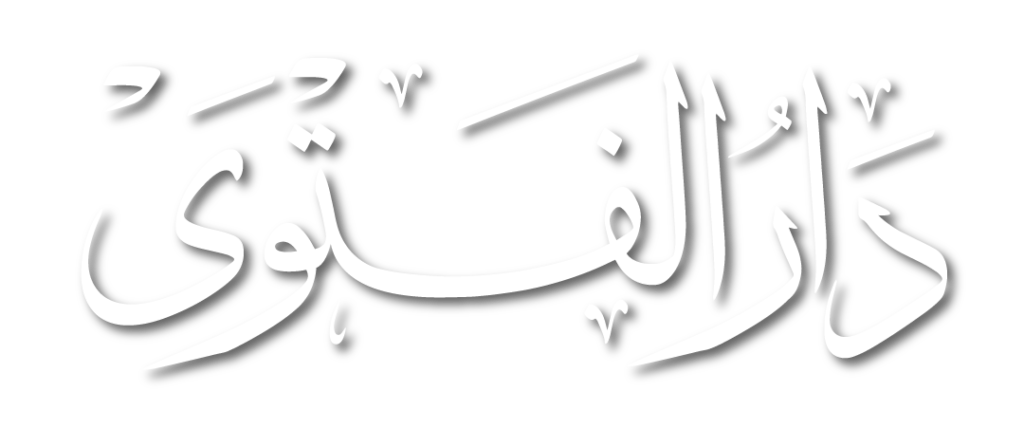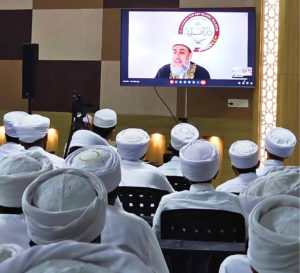The Likeners have taken the narration of Muslim by its apparent meaning and were then misguided, and what they say does not save them from misguidance. They say, “We interpret the statement, ‘fis-sama’,’ in the hadith as ‘fawqal-^Arsh,’ [above the ^Arsh].” [This does not protect them from misguidance] because by that they have confirmed a similar for Allah, which is the book in which Allah Ordered to be written:
إنّ رحمتي سَبَقَت غَضبي
[which means] “Certainly My Mercy overcomes My Punishment.” That book is above the ^Arsh, so they would be confirming similarity between Allah and that book, because they confirm both Allah and that book dwelling above the ^Arsh. By that, they would have contradicted the Saying of Allah:
﴿لَيسَ كَمِثلِهِ شَىءٌ﴾
[which means] “Nothing is like Him in any way.”
This hadith about the book is narrated by Ibn Hibban according to the expression:
مرفوع فوقَ العرش
[which means] “Raised above the ^Arsh.” As for the narration of Al-Bukhariyy, the expression is:
موضوع فوقَ العرش
[which means] “Put above the ^Arsh.”
Some people have explained the term “fawq” in this hadith, which means “above”, as “below”, and that is rejected by the narration of Ibn Hibban, “Raised above the ^Arsh.” In this narration it would not be valid to interpret “fawq” as “taht.” Furthermore, according to this creed of theirs, it would be necessary that Allah would be parallel to the ^Arsh, either having its size or being bigger or smaller than it, and everything that has a measure is an event and is in need of the one who gave it that measure. There is no similarity between the ^Arsh and Allah, just as there is no similarity between Him and any of His creation.





